The Equality Act 2010 defines sex in a binary way: male or female. Most datasets reflect this. However, sex is more complex. Some people don't fit in these two categories, for example intersex people. People’s gender identity is a personal, internal perception of oneself so does not always align with the sex they were assigned with at birth. Non-binary people do not identify with either of these two categories.
The data gives us a basic understanding about sex and sport, but there are clear gaps around non-binary and intersex people's participation. This binary approach can also be "othering".
Othering
"To view or treat (a person or group of people) as intrinsically different from and alien to oneself."
Datasets or terminology which combine a diverse group of people under a heading like "other" can be othering. We lose our understanding of the diversity of the group. It can make people feel excluded, and contribute to them being marginalised.
Several of these datasets use 'other'. We have retained this term to accurately reflect the source data. We are reviewing our own data collection to avoid this term in future.
Context
There are slightly fewer males than females in Scotland
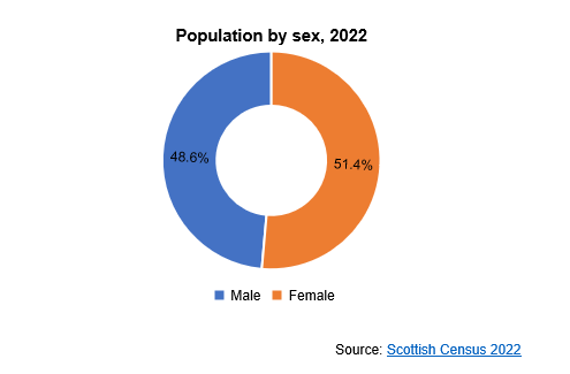
Physical activity
Women and girls are less physically active than men and boys, this starts between the ages of 8-10.
There is a 22% gap in activity levels between boys and girls by age 13-15.
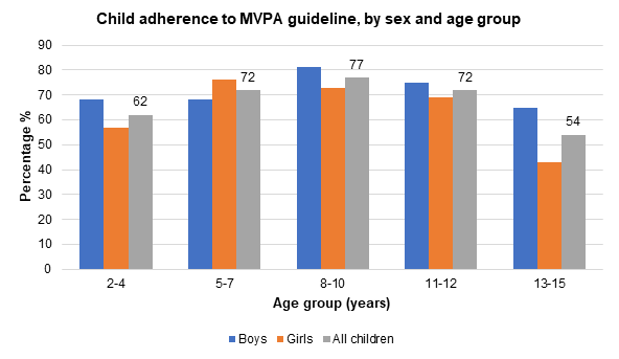
This continues into a 10% gap in adults. Women are also more likely to report very low activity (doing less than 30 mins each week)
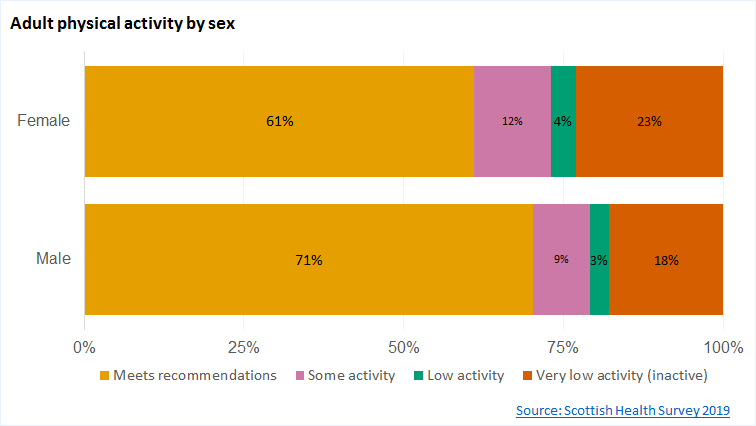
Sport
Girls do slightly less sport. Fewer women take part in sport
Girls are more likely to do no sport and exercise each week, and are less likely to do it frequently.
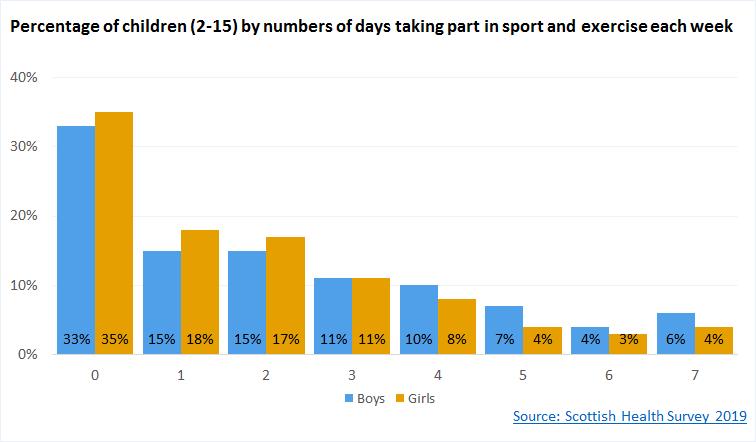
There’s a 7% gap between men and women taking part in sport, excluding walking.
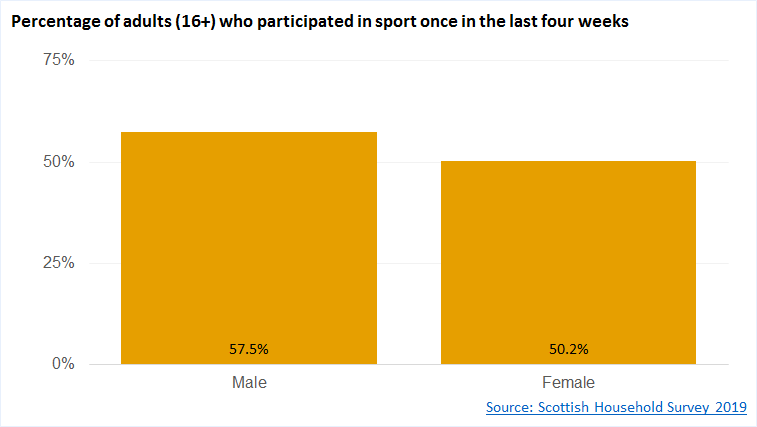
This is a persistent trend, showing little change.
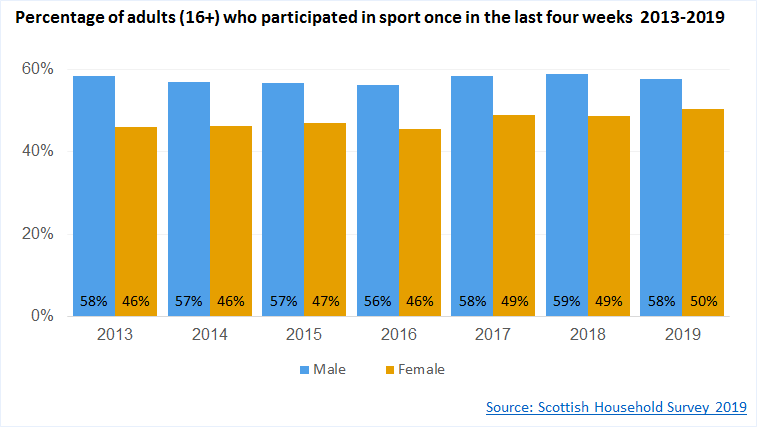
Participation in our key programmes
Women are significantly less likely to take part in club sport
We see the greatest inequality in club sport.


